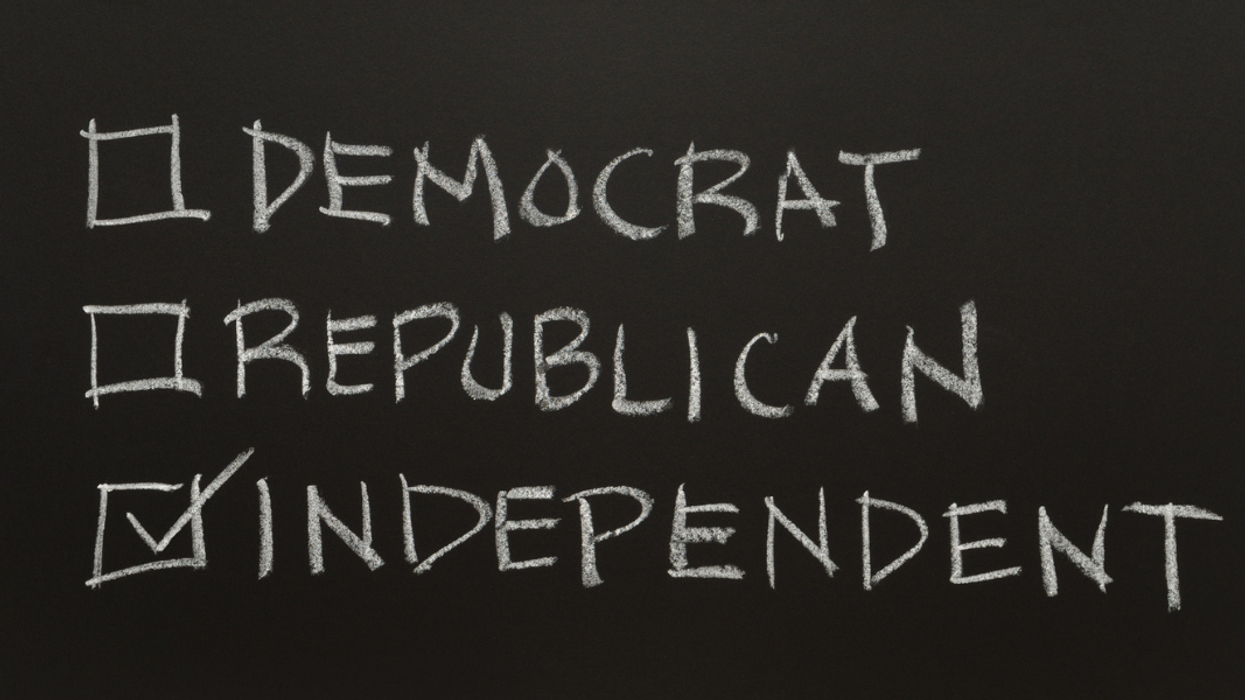Anderson edited "Leveraging: A Political, Economic and Societal Framework," has taught at five universities and ran for the Democratic nomination for a Maryland congressional seat in 2016.
Whoever wins the presidential election in 2024 — Donald Trump, Joe Biden, or some other Republican or Democrat if one of them drops out — we need a political movement to launch within two to four years to represent the interests of the 40-plus percent of Americans who do not identify with either of the major political parties. If Trump wins, democracy will not close down in America although it may experience a series of hard body punches for four years. If Biden wins, lukewarm support for him and the Democrats does not mean we do not need a major democratic revolution.
Social movements and political movements, according to political scientists and sociologists, engage a group or groups of people in some advocacy effort to promote a collective goal. That goal could be broadly progressive or broadly conservative, although the majority of social and political movements have been on the progressive side. The goal could be very radical, whether left wing (socialist) or right wing (fascist). Some of the most familiar social movements in the United States are the labor movement, the anti-Vietnam-War movement, the civil rights movement, the women's movement, the LGBTQ movement, the Tea Party movement, the pro-life movement, and the environmental movement.
The United States needs an independents movement, which should be intertwined with a tripartisanship movement that would include some Democrats and Republicans. We must transition away from bipartisanship: Washington is too polarized to achieve it. The two-party system is failing because over 40 percent of the public has no party or group of independents who speak for them. Bipartisanship is not the goal in the United Kingdom, France or Australia, and it should gradually be replaced in the United States with the goal of tripartisanship.
Tripartisanship will come about when a sufficient number of independents are either elected to Congress or switch from one of the major parties while in office already. Getting to a critical mass of five to six independents in the Senate and 10-15 independents in the House — who can come from different ideological points of views — could take eight to 10 years. It makes more sense for independents to fight for individual seats than to start anything resembling a national movement. Once some successes have been achieved, however, it will be wise to officially name and start a political movement. The movement, like the runner in a relay race, needs to have the baton handed to her once she has started running herself.
Social and political movements differ in many ways. Some are focused on one issue, like the pro-life movement or the anti-Vietnam movement, while others are focused on a range of issues, policies and regulations that concern a general issue. The civil rights movement, the women's movement and the environmental movement fall into this category. The tripartisanship movement does not concern one policy. Indeed, it concerns a range of policies and concepts, including ranked-choice voting and independent redistricting commissions to end gerrymandering.
A critical question is when to start such a movement, or what to name it if in fact it has already started. The civil rights movement, for example, was getting started with the Supreme Court’s Brown vs. Board of Education decision even though no one said it at the time. With the Montgomery bus boycott, which lasted a year, the concept of a social movement was becoming more evident to the press and to the public.
A tripartisanship movement is consistent with other political movements that also call for major political change. This includes umbrella movements that are trying to unite an extensive array of political organizations in the “save our democracy” space like the Bridge Alliance, which coordinates the activities of 80 organizations (and publishes The Fulcrum). Bringing about major social and political change is a different enterprise from building a stadium. There are different organizations and movements operating simultaneously with overlapping agendas.
A tripartisanship movement is narrower in scope than efforts that seek to unite organizations that are addressing problems ranging from civic education to campaign finance reform to making it easier to vote. As a result, it is ideally suited to take the lead on working on one major problem and providing fuel for movements and organizations that are addressing a wider set of problems. The tripartisanship movement could take 10 years to achieve its main objectives. Its forward motion will simultaneously help advance the efforts of organizations like the Bridge Alliance.




















Marco Rubio is the only adult left in the room